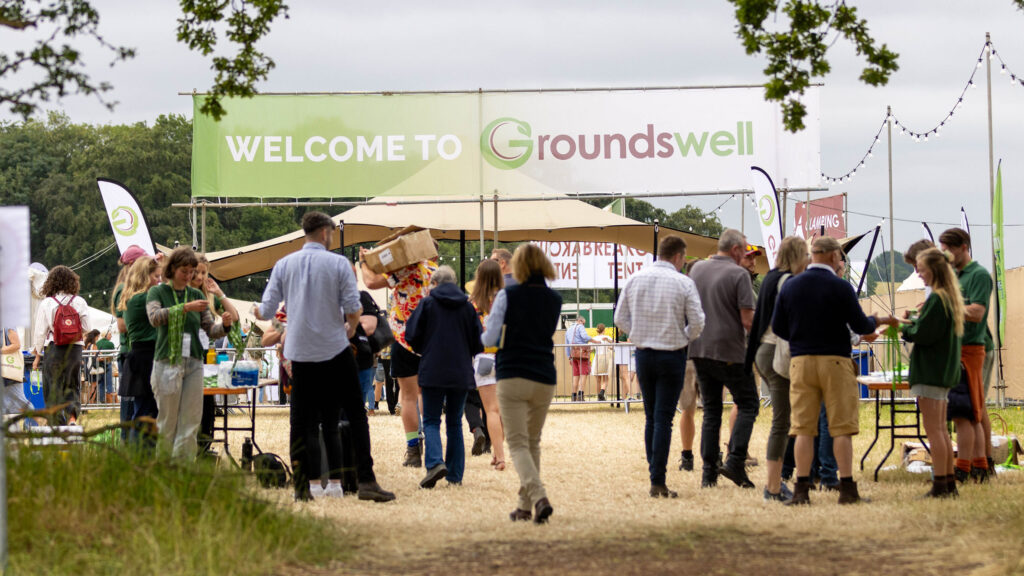Opinion: My four-point plan to de-isolate farming
 © Groundswell
© Groundswell Last week, I spent time with leading thinkers – none of whom were standing in the general election, although there were valuable messages for the new government.
A day with schoolchildren, a day at Groundswell and a day hosting 25 farmers from 20 countries visiting with the Global Farmer Network.
The message was clear: isolation is the blocker to progress on our farms and in our countryside.
See also: Groundswell – regen supply chains – will farmers see rewards?
The two classes of Year 10s loved their day out of the classroom, but they struggle to grapple with how the food on their plate and what happens on UK farms are connected. This isn’t their fault.
Through 25 years of experience hosting school visits, it is clear to me that farming has failed schoolchildren with a naive disregard for their needs.
Speaking a foreign language, louder and slower, doesn’t make it easier to understand.
Farming is too far removed from schoolchildren’s everyday to join the dots.
Our messaging requires a partner to piggyback upon, or a hand to hold to tell the story, so that it lands in the right language.
They need a restaurant, caterer, retailer or processor, preferably with a recognisable brand. We need to de-isolate.
Our farm to fork is on Facebook but they hear in TikTok. The journey must start with them, so we must learn “fork to farm” if we want to attract a new audience.
Groundswell is the antithesis of isolation. It’s not so much an event for farmers, moreover an event for people with a shared mindset – two days of infectious atmosphere oozing happiness.
What makes it so enjoyable is the festival vibe where people are being stimulated by learning from each other – sharing stories and vulnerabilities, and collaborating. There’s a huge sense of belonging.
If talking acres, yields and shiny machinery is your thing, then Groundswell may not be for you, but I have been visiting since it began in 2017.
It’s a more diverse audience, but a constant has been the open mindset, with people wanting to learn from each other.
At Groundswell, no one is judged or isolated. The bigger the mistake, the greater the learning.
Hosting farmers from six continents for the Global Farmer Network was an extraordinary privilege.
Whether it was Nestor from Columbia, Lucy from Kenya or Huynh from Vietnam, our stories had common threads.
Ultimately, we all struggled with farming’s perceptions of isolation in attracting new young team members or retaining key people.
Our sectors were stagnating because of a failure to collaborate, an obsession with duplication (sound familiar) and a feeling of isolation, with others within the supply chain wanting to offset responsibility, but not willing to recognise the positive contribution from the farmer. Such responsibility is lonely.
If I were the new secretary of state to Defra, my four-point plan to tackle this would be:
- Find tax incentives to reward collaboration for both farms and research institutes
- Give greater flexibility to farming businesses to support degree apprenticeships to attract a new audience
- Create a UK standard for carbon measurement and baselining to align best-practice stewardship and farming for soil and carbon where landlord and tenant can mutually benefit
- Adopt Henry Dimbleby’s food plan to connect society through food.
Bluntly, to regenerate farming, we must de-isolate it.

